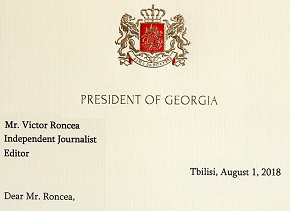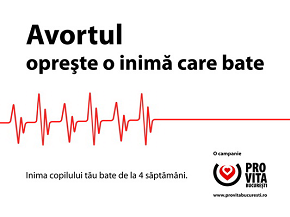 The immigration debate in France just got a bit hairier. After the government publicly rounded up and expelled over 10,000 Roma in this year alone, French authorities have announced they will begin to use a biometric fingerprinting system to discourage those who were expelled from ever coming back. —JCL
The immigration debate in France just got a bit hairier. After the government publicly rounded up and expelled over 10,000 Roma in this year alone, French authorities have announced they will begin to use a biometric fingerprinting system to discourage those who were expelled from ever coming back. —JCL
Al-Jazeera English:
French authorities will soon take the fingerprints of Roma and other migrants, in an attempt to discourage them from coming back to France after being expelled.
Martine Rodier, head of the ministry of immigration and integration, made the announcement on Friday, two days after the French government had been cautioned by the European Commission for its deportations of European citizens from Bulgaria and Romania.
Rodier said that the “biometric system will allow us to detect repeated requests for repatriation assistance and help us prevent the undue payment of return aid to people who come once, twice.”
She added that authorities will take a full set of prints for every person over the age of 12 who receives financial assistance to leave the country. The fingerprinting is set to begin on October 15.
The authorities argued that the policy will not be specific to the Roma, and is therefore not discriminatory.
However, a large proportion of people who receive the reparations are Roma. France has expelled 10,000 Roma so far this year, according to Amnesty International. A sum of 300 euros was paid in most of these cases.
Those who accept the payment are considered by the government to have left “on a voluntary basis.” Those who refuse to leave risk being incarcerated at detention centres and ultimately deported without any payment.
Strained relations
The fingerprinting announcement coincides with the polarised debate over the place Roma have in the EU.
Earlier in the week, the EU made a declaration on the deportations, which have become a test for the right to free movement within the Union.
The EU fell short of pushing for charges of discrimination against the French government, but asserted that freedom of movement is “one of the fundamental principles of the EU.”
The fingerprinting policy will likely strain relations with Brussels even further.
France has defended its repatriation policies, claiming that they conform to European standards.
The Romanian government has criticised France’s actions as discriminatory, as has the Vatican.
In a statement, Romanian President Traian Basescu said last month that his government supports the “the right of every Romanian citizen to travel without restrictions within the European Union.”
Domestically, the debate has drawn criticism from the right as well as the left.
Old tricks
The repatriation policy isn’t new, Patrick Delouvin of Amnesty International France told Al Jazeera. An average of 1000 Roma per month were deported by France in 2008 and 2009.
What has changed in recent months, says Delouvin, is that the government is now seeking to publicise its rounding up of the Roma.
He added that the government has pounced on the issue ever since the outbreak of violence between Roma clashes with police following death in the city of Grenoble.
Immediately following this incident, according to Delouvin, the government began a campaign that was directly targeting the Roma.
He pointed to a meeting that was held at the Elysée on July 28 on “problems posed” by Roma and French travellers (itinerant French nationals who see themselves as a separate group from the Roma).
Then, in August, came the internal memo from the interior minister’s office to police chiefs and regional prefers ordering “a systematic operation to dismantle illegal camps, prioritising those of the Roma”.
While the EU downplayed charges of discrimination last week, Representative Council of Black Associations will be taking Michel Bart, the official who issued the memo, to court this month. Bart will be appearing on charges for “incitement to racial hatred,” according to the Guardian.
“From the very beginning, there was a form of stigmatisation,” Delouvin said.
For Delouvin, the policy toward the Roma is just one aspect of a broader move by the government to focus public attention on its security credentials. He said that this shift in policy has intensified since the governing UMP’s poor performance in the regional elections
“One gets the impression that the government has seized a certain number of opportunities,” he said.
Tough stance
The government’s reaction to the Grenoble clash echoes how the previous government handled the conflict that broke out in many French suburbs in 2005. Sarkozy, then interior minister, was criticised by opponents who argued he played a key role in provoking the violence. He was criticised for stigmatising marginalised youth who came from mainly immigrant backgrounds, in particular for his repeated use of terms such as “scum” and “delinquent.”
 |
| The European Commission has cautioned France over its handling of Roma [AFP] |
The interior minister’s tough stance appealed to many French voters, however, and Sarkozy went on to win the presidency two years later.
This time round, Sarkozy has cast the expulsions as part of a “war on criminality”.
“This is a real war that we are waging on the traffickers and the delinquents,” he said in July, claiming that the Romas’ camps are a source of child exploitation and prostitution.
Ciprian Necula, an activist for Roma rights in Romania, told Al Jazeera that the EU’s condemnation of France was hugely significant.
“It’s the first time in history that such a strong message has been sent supporting Roma as an ethnic group,” the rights activists said.
Necula said that there was some truth to the assertion that a minority of Roma are trafficked to Western Europe to beg or steal, and that authorities should crack down on it. He said that security-centric initiatives like fingerprinting, however, are the wrong approach.
The present debate in countries like France and Italy risks undermining hard-fought gains that Roma have made recently in Romania and neighbouring countries, he said. Combating longstanding stereotypes of Roma as criminals is being undermined by the emphasis on security rather than social and economic development.
“The Roma issue is not criminality, it’s a social issue,” Necula said.
Al Jazeera and agencies

 October 3rd, 2010
October 3rd, 2010  VR
VR 
 Posted in
Posted in  Tags:
Tags: 





































Noi, evident. Numai ca noi o sa fim amprentati acusica ca infractorii chiar la noi acasa pentru “noul buletin”. 🙂
Ca, vorba parintelui …”romanu ii mai sluga decat sluga!”.
intr`adevar tehnologia a avansat mult. de la tatuaje cu numere pe mana la amprente biometrice. traiasca civilzata si toleranta uniune europeana